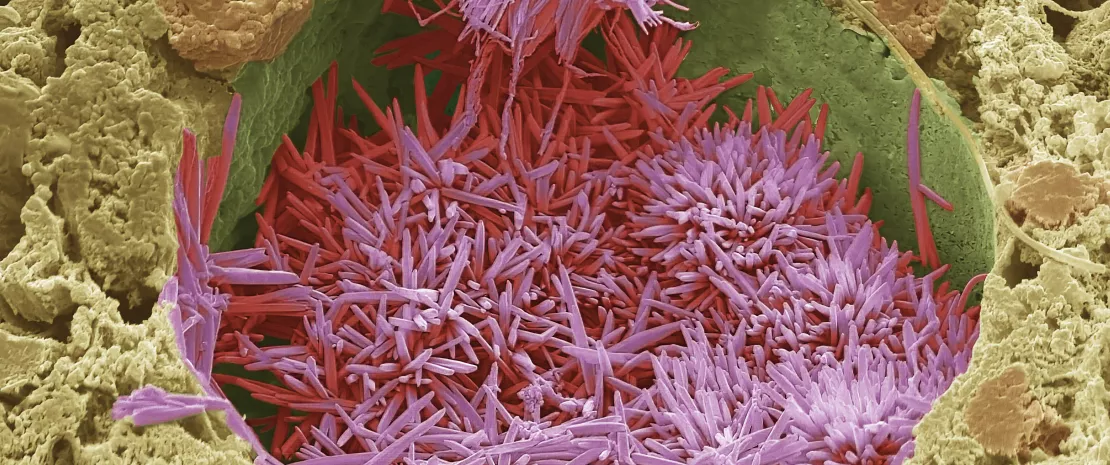Bacteria in the gut microbiota capable of reducing cholesterol?
According to a new study, the microbiota influences cardiovascular health parameters in multiple ways. Certain bacteria capable of metabolizing cholesterol could have a significant beneficial impact on cardiac risk.
Lay public section
Find here your dedicated section
Sources
This article is based on scientific information

About this article
The gut microbiota could one day be a therapeutic target of choice in the fight against cardiovascular disease. So suggests a study conducted by American researchers at Massachusetts General Hospital. 1
They have just demonstrated that there are numerous associations between gut bacteria and metabolic parameters of cardiovascular health. The strongest links concern certain bacteria capable of metabolizing cholesterol.
Cardiovascular risk factors: microbial age could change the game
“Microbial age” is a parameter calculated on the basis of age-related changes in certain bacterial species of the gut microbiota (around fifty in all). According to a study published in Nature Medicine 2, having a low microbial age despite your actual age could protect against cardiovascular disease. In people over 60 with major cardiovascular risk factors (obesity, high blood sugar, etc.), a low microbial age reduces the risk of cardiovascular disease, while a high microbial age increases it, irrespective of sex, age, dietary factors or lifestyle. Microbial age thus appears to counterbalance the cardiovascular risk associated with metabolic dysfunction. This is further evidence of the involvement of microbiota in cardiovascular health.
In-depth data on the relationship between the microbiota and the host metabolism
To reach this conclusion, the researchers drew up a complete profile of the gut environment of over 1,400 individuals in the Framingham Health Study. They carried out metagenomic sequencing (analysis of the genomes of all gut microorganisms) and metabolomic sequencing (analysis of all metabolites) of the stools of all the volunteers.
They then investigated whether there were any correlations between the microbiota data and the volunteers' health parameters (triglycerides, cholesterol, C-reactive protein, blood sugar, glycated hemoglobin, blood pressure, etc.).
Résultats
The results: there are over 16,000 associations between gut microorganisms and metabolic parameters. Among the strongest, scientists identified a negative relationship between bacterial species of Oscillibacter and fecal and plasma cholesterol. Volunteers with an abundance of these bacteria in their microbiota had lower cholesterol levels.
Bacteria equipped to break down cholesterol
By cultivating three in vitro isolates, the team demonstrated that Oscillibacter were able to absorb cholesterol and transform it into cholestenone, cholesteryl glucoside and hydroxycholesterol, metabolites that could be broken down by other bacteria and ultimately excreted by the body.
Furthermore, it appeared that the simultaneous presence in the volunteers' microbiota of Oscillibacter and Eubacterium coprostanoligenes (bacteria carrying a gene called ismA involved in cholesterol metabolism) was associated with a more marked reduction in blood cholesterol levels. According to the researchers, the two types of bacteria could have a positive synergistic effect on cholesterol levels.
A vast field of research ahead
The advantage of this study compared with previous studies is that it provides a more complete and detailed understanding of the metabolic pathways by which bacteria act on the body.
It also lays the foundations for future studies targeting how changes in the microbiota contribute to cardiovascular disease, including how different bacterial communities interact with each other to affect health.
Outcome
The key is a better understanding of gut ecology, which could one day lead to the development of innovative therapeutic strategies targeting one or more gut bacteria.




